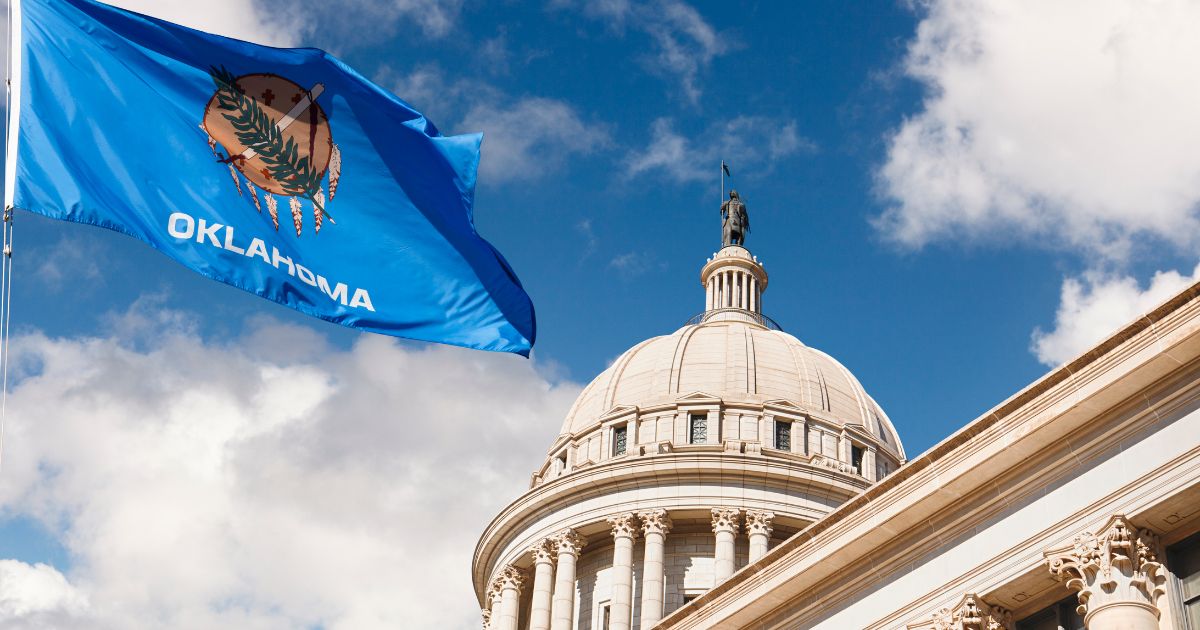Governor Kevin Stitt of Oklahoma has recently decided to take action in what he believes are to address concerns surrounding psychoactive hemp-derived products in Oklahoma, urging multiple state agencies to implement a coordinated crackdown on these substances. In a recent letter to those state agencies, he raised concerns about the psychoactive properties, potential misuse, and widespread accessibility of hemp-derived products. Stitt’s actions highlight a broader trend among states to tighten regulations on hemp-based products, a move made possible by the 2018 Farm Bill.
Psychoactive Marijuana Byproducts?
Governor Stitt’s letter focuses on compounds derived from hemp, including Delta-8 THC, Delta-10 THC, Hexahydrocannabinol (HHC), Tetrahydrocannabinol-O Acetate (THC-O), Tetrahydrocannabiphorol (THCP), and Tetrahydrocannabivarin (THCV). These substances, while often marketed as alternatives to traditional cannabis products, he said, are chemically synthesized or altered from cannabidiol (CBD).
Unlike CBD, these compounds exhibit mind-altering properties. Stitt emphasized in his letter that such products are often sold in both dispensaries and unregulated markets like convenience stores, with insufficient oversight. His primary concern lies in the significant health and safety risks these substances pose, especially when marketed to younger audiences without clear labeling or dosage guidelines.
Governor Stitt’s Call for Unified Action
Governor Stitt sent this letter on Monday to key agencies, including the Oklahoma Bureau of Narcotics and Dangerous Drugs Control (OBNDDC), the Oklahoma Medical Marijuana Authority (OMMA), the Oklahoma Department of Public Safety (DPS), and the Oklahoma State Bureau of Investigation (OSBI). The governor called for immediate, collaborative efforts to regulate and counteract the unlawful manufacturing, distribution, and sale of psychoactive hemp byproducts.
Stitt outlined several specific requests for the agencies involved. He urged them to work together to investigate the sources of these substances, focusing on both licensed dispensaries and the illicit market. The OMMA will regulate dispensaries, while agencies like OBNDDC, DPS, and OSBI will target unlicensed networks, including products sold in convenience stores and unauthorized outlets.
Additionally, he directed the agencies to assess gaps in current laws and provide recommendations for legal or administrative improvements to strengthen enforcement. The agencies have been given 30 days to respond with a collaborative plan.
Why the Focus on Hemp-Derived Products?
Governor Stitt’s actions align with larger concerns across the U.S. regarding the accessibility and unseen consequences of hemp-derived products. Stitt has emphasized how these substances, often marketed towards youth, lack adequate regulatory scrutiny. Products such as Delta-8 THC and Delta-10 THC, for instance, are, he said, frequently used without consumers fully understanding their effects due to misleading packaging and inadequate public education.
Unlike traditional marijuana products, which state legalization frameworks generally regulate, psychoactive hemp-derived products navigate legal gray areas. Stitt argues that these gaps pose significant risks to the safety and well-being of Oklahomans.
Oklahoma’s initiative aligns with efforts by other states like Florida, Texas, and California, which have also recently taken steps to regulate hemp-derived substances. Many of these state-enforced crackdowns aim to impose tighter controls, particularly on products associated with untested safety profiles or questionable marketing practices.
What Comes Next for Oklahoma?
The coordinated response requested by Governor Stitt signifies just the beginning of what could be a long regulatory overhaul in Oklahoma. Although the specific outcomes of this initiative are still unclear, the state is clearly intensifying its control over hemp-derived products.
The combination of targeted enforcement, collaboration among key agencies, and potential legal reforms not only aims to curb unauthorized sales but also raises questions about how the hemp and cannabis industries will evolve in response to stricter oversight.
Governor Stitt’s position is part of a growing trend in the United States. States are increasingly recognizing that, while the 2018 Farm Bill opened the door to industrial hemp, it paved the way for the rapid growth of unregulated hemp-derived products. The lack of uniform federal guidance further amplifies the regulatory responsibility placed on individual states.























